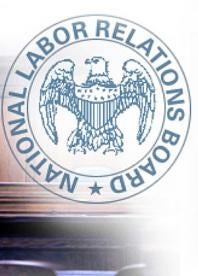The National Labor Relations Board (the “Board” or “NLRB”) under The President has broadly interpreted the protections afforded under Section 7 of the National Labor Relations Act (the “Act”). Section 7 gives employees the right to engage in concerted activity for mutual aid and protection and to form, join or assist labor unions. Employees also have the right to communicate about organizing and other union matters as part of their Section 7 rights. Despite the incorrect assumption that even some attorneys often make, the Act applies to union and nonunion employers alike.
In expanding protections under Section 7, the Board has struck down what were previously considered customary and fairly innocuous workplace policies. For example, the Board has struck down workplace policies requiring employees not to discuss confidential investigations (GT Blog, March 14, 2013) as well as overbroad social media policies governing what employees can and cannot post on social media websites or blogs. These decisions have had considerable ramifications for employers who perhaps previously had paid little attention to the NLRB.
Now it appears that the Board may be targeting policies prohibiting employees from using company email for personal matters or for the purposes of organizing. In inviting the filing of amicus briefs on the issue, (Purple Commc’ns, Inc., NLRB, No. 21-CA-95151, invitation to file briefs 5/1/14), the Board is signaling that it may overturn current precedent that generally allows employers to prohibit employees from using work e-mail systems for non-business purposes, including union organizing.
The Board’s invitation comes less than seven years after the Bush-era NLRB decision, The Guard Publishing Company d/b/a The Register Guard, 351 NLRB No. 70 (Dec. 16, 2007), which at the time resolved longstanding questions concerning the extent to which an employer could restrict the use of its e-mail communications systems. Register Guard held that employees do not have a statutory right to use a company e-mail system to engage in Section 7 activity under the National Labor Relations Act.
Since Register Guard, employers have been able to lawfully prohibit employees’ non-work-related use of company e-mail systems unless they act in a manner that discriminates against Section 7 activity. Such policies may now be in peril.
In Purple Communications, Inc., JD-75-13 (Bogas, ALF, Oct. 24, 2013) the Administrative Law Judge relying on Register Guard dismissed an allegation that the company committed an unfair labor practice by maintaining rules prohibiting the use of company equipment for anything but business purposes. The policy “strictly prohibited” employees from using the “computer, Internet, voicemail and email systems […] in connection with […] engaging in activities on behalf of organization[s] or persons with no professional or business affiliation with the Company [and] sending uninvited email of a personal nature.”
NLRB General Counsel Richard Griffin and the Communications Workers of America filed exceptions to the ALJ’s October 2013 decision, urging the Board to overrule Register Guard and adopt a rule that employees who are permitted to use company e-mail for work are guaranteed the right to use it for Section 7 activity, subject only to the employer’s need to maintain production and discipline.
Among other issues, the NLRB’s invitation asks interested groups to comment on two related questions:
-
Do employee personal electronic devices (e.g., phones, tablets), social media accounts, and/or personal email accounts affect the proper balance to be struck between employers’ rights and employees’ Section 7 rights to communicate about work-related matters? If so, how?
-
Identify any other technological issues concerning email or other electronic communication systems that the NLRB should consider in answering the foregoing questions, including any relevant changes that may have occurred in electronic communications technology sinceRegister Guard was decided. How should these affect the NLRB’s decision?



 />i
/>i

